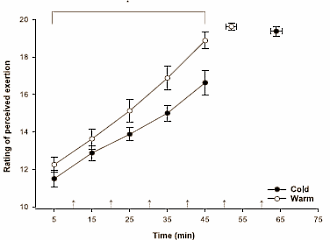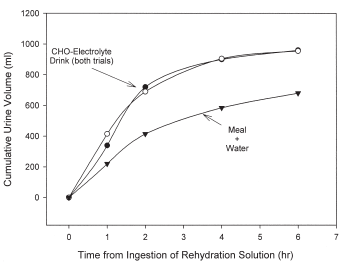|
Working out at high temperatures goes well with creatine supplementation
Even when the weather is hot, athletes can use creatine without problems. Supplementation with creatine will not make them less resistant to heat. This is evident from a meta-study published by sports scientists at the University of Connecticut in the Journal of Athletic Training.
Creatine & heat
Creatine supplementation makes cells to retain more water. This could theoretically mean that athletes who use creatine sweat less easily, and thereby become overheated sooner during their training sessions at high temperatures. But in theory, creatine supplementation could also have exactly the opposite effect. You can also argue that a larger water reserve can facilitate perspiration.
Or maybe both arguments hold water [no pun intended] and both effects cancel each other out, and creatine has no effect on the body's ability to keep the temperature level.
So what is it?
Study
The researchers collected 10 studies in which subjects had been given creatine and had to exert themselves while their body temperature was being monitored. In one study the subjects lifted weights, in another one they did interval training, but in most studies they were doing cardiosessions of 40-60 minutes.
During the experiments the temperature in the lab varied from 30 to 39 degrees Celsius, the humidity varied from 25 to 80 percent.
The physical tests were preceded by supplementation periods of 5-7 days usually, and occasionally 23 days. The first 4-5 days the subjects were given a dose of 20 grams of creatine per day, then the researchers reduced the dose to a few grams per day.
Results
According to the meta-analysis, creatine supplementation did not affect the body temperature during physical exertion.

Conclusions
"No substantial evidence currently exists showing that creatine supplementation hinders the body's ability to dissipate heat or body fluid balance when appropriate doses are consumed", write the researchers. "Controlled experimental trials of athletes exercising in the heat over a short period of time resulted in no adverse effects from creatine supplementation."
"Future researchers should include longer supplementation periods, exercise bouts that simulate a game or practice situation (ie, greater than 60 minutes in duration), and more controlled field studies."
Source:
J Athl Train. 2009 Mar-Apr;44(2):215-23.
More:
Steroids, creatine and high-protein diet can cause kidney damage if you don't drink enough 11.08.2015
L-Alanyl-L-Glutamine helps dehydrated athletes to better times 14.08.2010
Hyperhydration helps endurance athletes 09.07.2009
Archives:
Creatine
|





